The shocking sight of a mob of Americans taking over the Capitol elicited speculation about whether this is a coup, an insurrection, a riot, or thuggery. On this occasion, we can learn something from other countries.
Latin America has a history of autogolpes, or “self-coups.” This is the term for efforts by sitting executives to enhance or retain power by overturning electoral outcomes or by unconstitutionally gutting the power of other branches of government. Trump’s measures to overturn the elections since November 3 constitute a “coup,” as they involve illegal usurpation of state power, even when it may not involve the use of force. Yet it is a “self”-coup because it is perpetrated by the head of government rather than military officers or others against that chief executive.
Past examples include President Alberto Fujimori of Peru, who dissolved the congress and curtailed the independence of the judiciary in 1992. Guatemala’s President Jorge Serrano Elías was rebuffed by the military and economic elites after he dissolved the congress and the judiciary in 1993. More recently, President Evo Morales of Bolivia fled the country after he tried to claim, in contradiction to what international observers concluded, that he’d won election to a fourth term.
Trump’s behavior constitutes a self-coup since he has sought to undermine the integrity of the November 3 election and has sought to overturn the results of an election. He urged voters to illegally vote twice; he sought to disenfranchise voters; he sought to coerce officials to alter the vote results. On January 6, Trump explicitly urged the mob to “walk down to the Capitol,” to “demand that Congress do the right thing,” to “show strength,” and to “take back our country.”
Trump’s efforts have failed. However, they reveal the vacuity of American exceptionalism. Of course, the United States has never been immune to the historical rise and fall of great powers, and its support for antidemocratic leaders abroad belie its vocal global advocacy of democracy.
The events reveal the fragility of America’s institutions and of its democracy, and its vulnerability to political violence and threats. The inability of federal security forces like the Capitol Police to defend the nation’s 535 lawmakers was shocking. (Ironically, the Metropolitan Police of the tiny District of Columbia had to help rescue the very legislators who deny democratic representation to that district.)
The fragility of democracy is familiar to electoral autocracies and new democracies. America’s democracy is not invulnerable to challenges. As former CIA agent Representative Abigail Spanberger (D-VA) said on January 6: “This is what we see in failing countries … This is what leads to a death of democracy.”
The self-coup unfolding in recent weeks weaken America’s ability to promote ideas of democracy, human rights, and inclusion abroad. U.S. democracy promotion, long seen as hypocritical by some in the Global South, now seems risible and will require time and recasting to have credibility. The resilience of American democracy is apparent with the election of someone who proclaims unity and stability. However, Republicans picked up seats in the U.S. House of Representatives, with increased support from Latino and Black men. The rejection of the election results by many Americans, including dozens of Republican members of Congress, deepens the crisis of truth, the prevalence of “fake news,” and the distrust in information and thus of electoral processes.
An intense pro-Trump minority persists in America that embraces ideas that have little basis in reality. This undercuts the possibility that Joe Biden’s victory might signal a reversal of a recent tide of populism and authoritarianism. Between 1994 and 2019, the number of populist regimes worldwide leapt from 7 to 20. Since 1994, a “third wave” of authoritarianism has crept across the globe, as democratic traits eroded in numerous countries. The number of more-free “liberal democracies,” as defined by the well-regarded V-Dem dataset, fell by 18% between 2012 and 2019.
America’s 2021 self-coup will only deepen this crisis of democracy.
America’s 2021 self-coup will only deepen this crisis of democracy. It signals that fighting electoral outcomes is possible anywhere — and perhaps easy. It vividly shows that large numbers of people are happy to discard democratic institutions and processes even in the world’s oldest and most powerful democracy.
It will be difficult for President-elect Biden to host his promised “Summit of Democracies” unless he frames it as a desperate need to bolster democracy here and elsewhere. U.S. leadership will require decades to recover from these events.
The Brookings Institution is committed to quality, independence, and impact.
We are supported by a diverse array of funders. In line with our values and policies, each Brookings publication represents the sole views of its author(s).

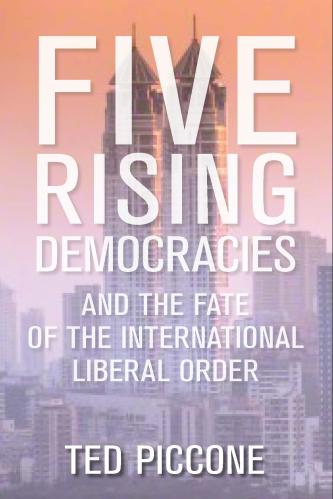
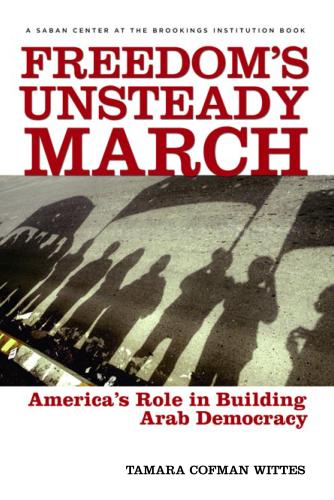

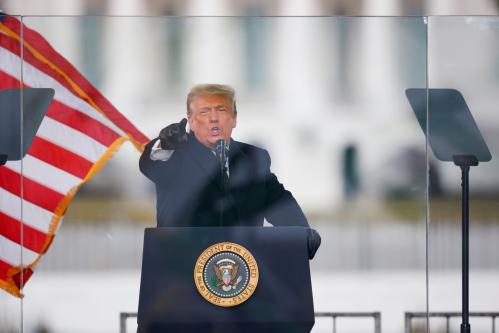

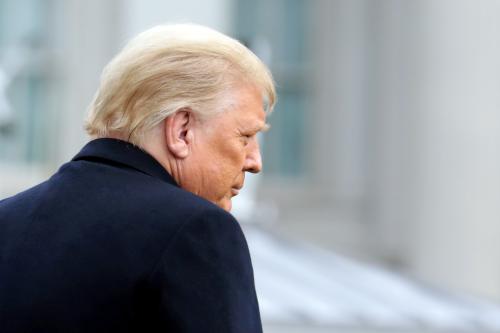


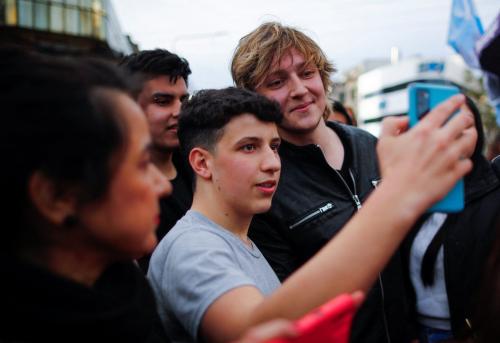

Commentary
No, it’s not a coup — It’s a failed ‘self-coup’ that will undermine US leadership and democracy worldwide
January 8, 2021